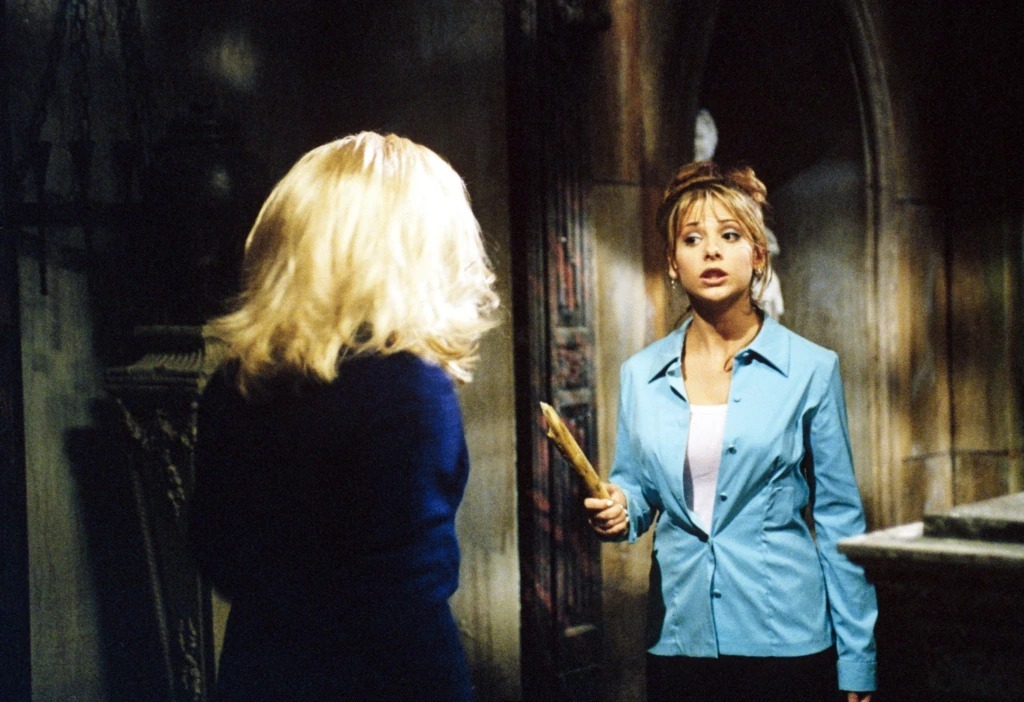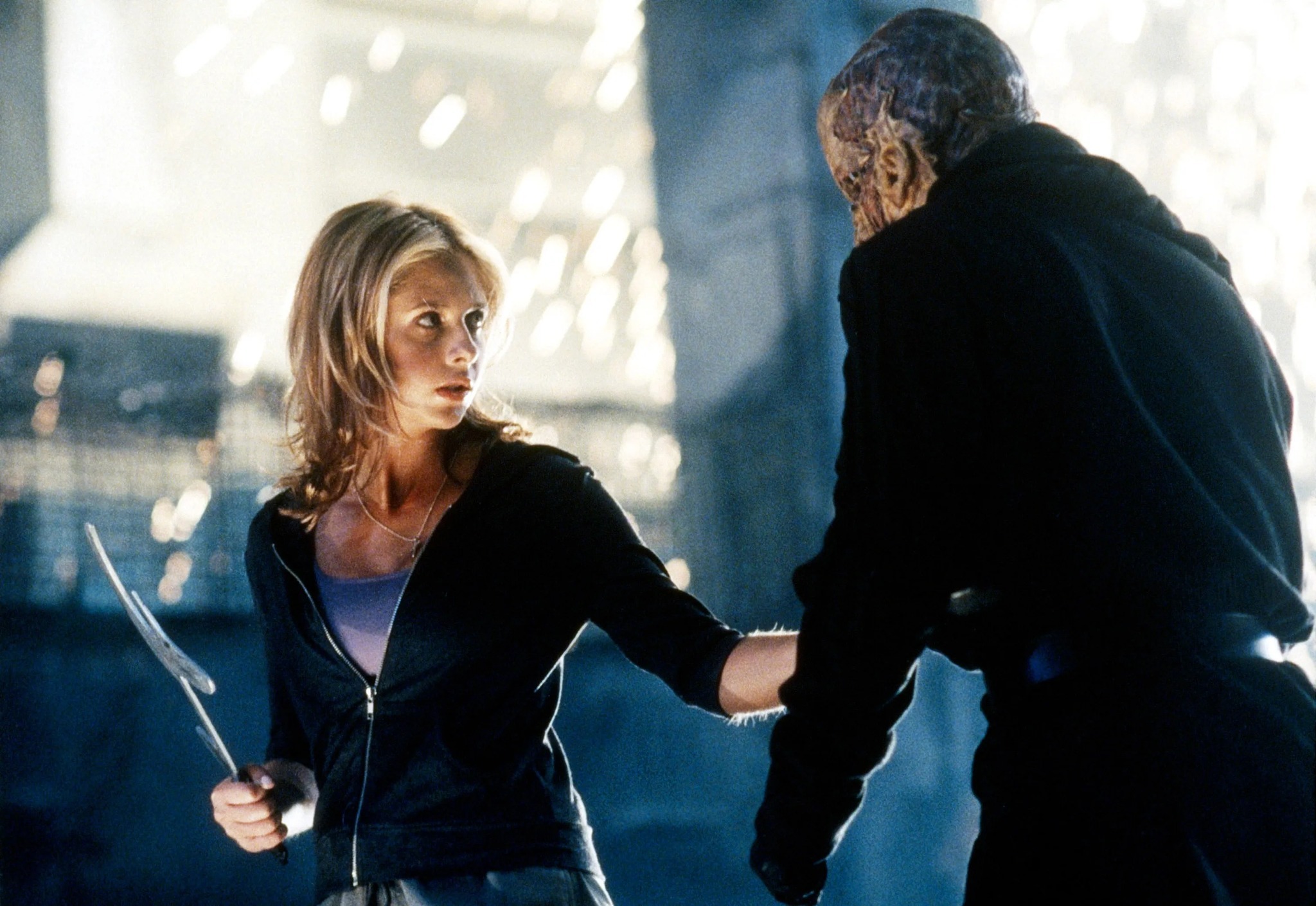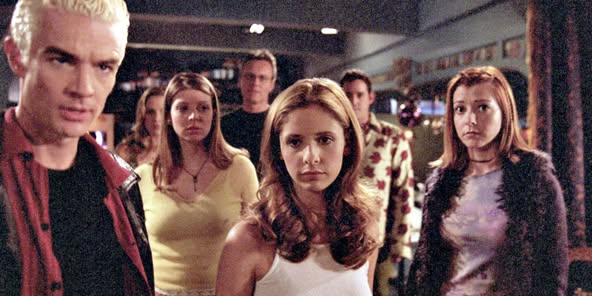Buffy the Vampire Slayer (1997-2003)

Buffy the Vampire Slayer (1997-2003) is an American supernatural drama television series created by Joss Whedon. Based on the 1992 film of the same name, Whedon’s series is a reimagining that quickly became a cult favorite. The show blends elements of horror, comedy, and drama, all while exploring complex themes such as identity, friendship, and responsibility. Whedon served as both the creator and executive producer, working under his production label, Mutant Enemy Productions. Buffy the Vampire Slayer premiered on The WB network on March 10, 1997, and concluded on UPN on May 20, 2003, after seven successful seasons.
The series follows Buffy Summers (Sarah Michelle Gellar), a high school student who discovers she is the “Slayer”—a chosen one with the responsibility to battle vampires, demons, and other supernatural forces. Throughout the series, Buffy navigates the challenges of adolescence while dealing with the weight of her role as the Slayer. She is supported by a group of loyal friends, including Willow (Alyson Hannigan), Xander (Nicholas Brendon), and Giles (Anthony Stewart Head), who aid her in her mission. While the show is set in the fictional town of Sunnydale, California, it is grounded in themes of personal growth, sacrifice, and the trials of coming of age.
One of the defining aspects of Buffy the Vampire Slayer is its unique blend of horror and humor. While it tackles dark and supernatural themes, the show is also known for its witty dialogue and self-aware humor. Buffy herself is portrayed as a strong and capable heroine, but she also experiences personal struggles and moments of vulnerability, making her a relatable character. The show balances its fight scenes with emotional depth, allowing viewers to connect with the characters as they face both supernatural and everyday challenges. The quick wit and sarcasm of characters like Willow and Xander add levity to otherwise intense situations.

The series is also notable for its exploration of deeper themes, particularly the complexities of identity, power, and choice. Buffy’s role as the Slayer often puts her in difficult situations where she must make sacrifices, such as putting her relationships and personal happiness on the line. As the series progresses, Buffy grapples with the pressures of being a leader, the consequences of her actions, and the burden of saving the world. Buffy the Vampire Slayer cleverly uses its supernatural setting to examine real-world issues, such as the challenges of growing up, friendship, and coping with trauma.

In addition to its rich thematic content, the series features strong performances from its cast, with Sarah Michelle Gellar’s portrayal of Buffy earning widespread acclaim. Her ability to combine strength with vulnerability helped make Buffy one of the most beloved characters in television history. The supporting cast, including Alyson Hannigan’s portrayal of Willow, a shy but powerful witch, and Anthony Stewart Head as Giles, Buffy’s mentor, contribute to the series’ emotional depth. The show also features memorable villains, such as Angel (David Boreanaz) and Spike (James Marsters), whose complex relationships with Buffy add layers of tension and drama.

In conclusion, Buffy the Vampire Slayer remains one of the most influential and groundbreaking television series of the late 1990s and early 2000s. Its combination of supernatural thrills, sharp humor, and insightful commentary on real-life issues has earned it a dedicated fan base and critical praise. Created by Joss Whedon, the show broke new ground for female empowerment in popular media, offering a heroine who is both powerful and flawed. Buffy the Vampire Slayer continues to resonate with audiences long after its conclusion, solidifying its legacy as a cult classic and a defining moment in television history.











